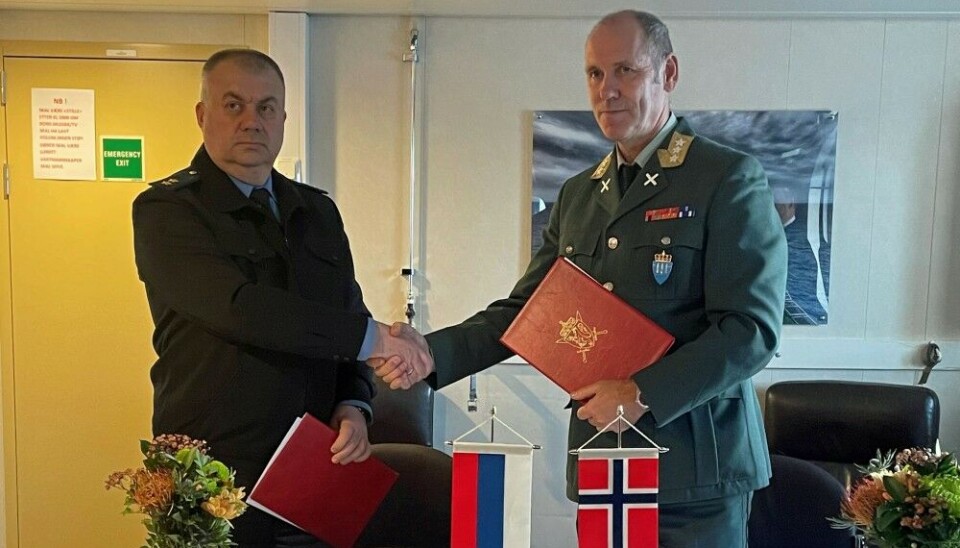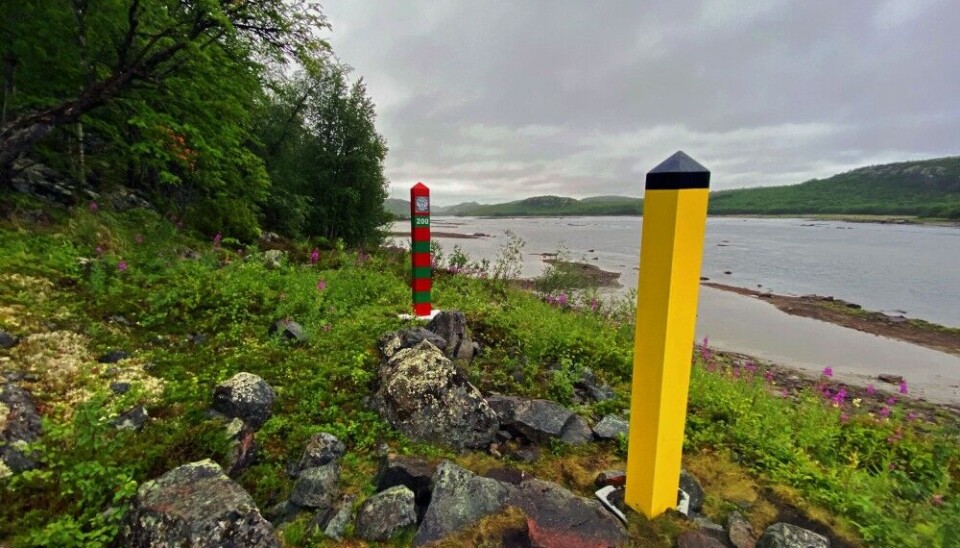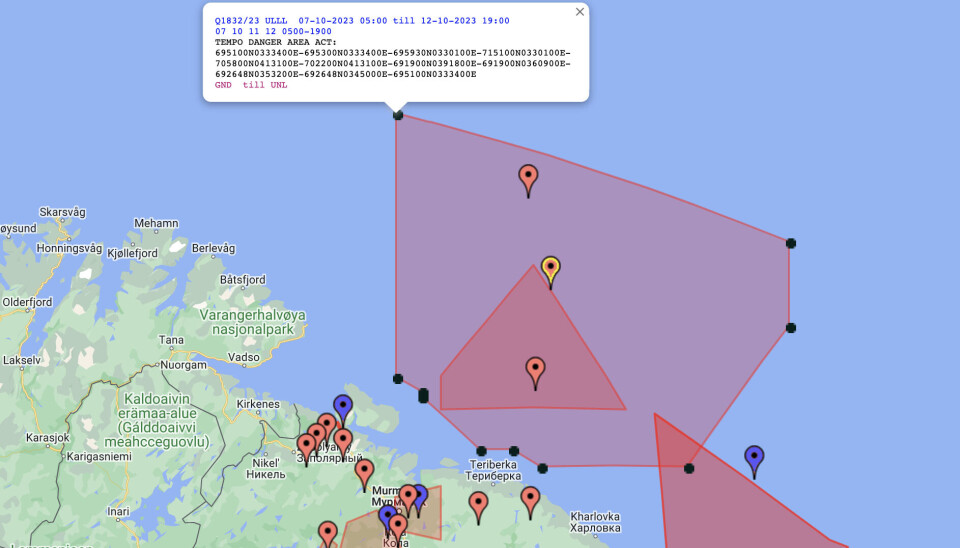
Border trouble not on agenda when FSB boss visited Norway
The last year’s controversial illegal border crossings and Russia’s military exercises troubling Norwegian fishermen in Norwegian economic zone were not on the table when the two countries' uniformed officials met for the annual protocol meeting.
Unlike all practices in post-Soviet times, no media was invited to the meeting between the two top border officials. A press release from the Norwegian Joint Headquarters was first published a day after the FSB delegation returned to Russia.
Last time Lt. Gen. Yngve Odlo and Lt. Gen. Stanislav Maslov met in Norway, in 2021, FSB was not happy with the media’s attendance and categorically turned down all requests from the press.
“Balanced thinking” and “considerations” are required so the dialogue can continue, says spokesperson with the Joint Headquarters, Lt. Col. Reidar Flasnes to the Barents Observer.
“That said, it is not so that the Chief of the Joint Headquarters allows himself to be dictated by the FSB on how we deal with the media.”
The meeting on October 5 took place on board a Norwegian coast guard vessel.
Last autumn, Norway canceled a planned coast guard voyage to Murmansk, a visit that according to FSB was agreed upon when the two generals met in April 2022 for the annual protocol gathering, in Borisoglebsk on the Russian side of the border.
The FSB Border Directorate for the Western Arctic region is in charge of frontier controls both along the 198 km land border with Norway and the maritime border in the Barents Sea and Arctic Ocean.
“It is important to conduct these meetings to discuss challenges and agree on common objectives and necessary measures regarding border cooperation, rescue cooperation, and fisheries management,” Odlo said in the statement.
Recent troubles in the border areas, however, were not on the agenda according to spokesperson Flasnes.
“Individual incidents of a police or political nature are not discussed during these meetings”.
No return
Not only has Moscow downgraded Norway to “very unfriendly” since the two generals met last year, but dramatic border incidents have intensified both on land and at sea.
- In January, shots were allegedly fired by FSB as Wagner defector Andrei Medvedev made it through the barbed-wire fence and ran across the ice-covered Pasvik River to Norway.
- In April, a Norwegian who crossed the border illegally was arrested by FSB and brought to detention instead of being returned as stipulated in the border agreement. The person risks two years in jail.
- In August, yet another man walked illegally across the border in the terrain. He was the third person in a few months making it into Russia and never came back.
The new regime of not returning people crossing the land border in the terrain came after dictator Putin last December ordered the FSB Border Guard to step up its work.
“The state border is the most important, key boundary for ensuring the country’s security, and must be guarded safely. Attempts to break it must be prevented promptly and efficiently using the existing capacities and tools,” Putin said according to transcripts of the speech posted by the Kremlin.

New iron curtain
The number of serious incidents is increasing and a new iron curtain falls along Europe’s northernmost border with Russia.
Lt. Gen. Odlo underlines the importance of having one open channel for dialogue.
“It can prevent accidents and misunderstandings between Norway and Russia,” he said.
Fishermen troubled
Less than 48 hours after the meeting, Russia activated a new Notice to Airmen (NOTAM) warning and corresponding navigation warning for seafarers in a large area that stretches into Norway’s Exclusive Economic Zone in the Barents Sea north of the Varanger fjord.
Norway and Russia in 2010 agreed on the maritime delimitation for this particular area.
Russian military exercises which include both sides of the maritime border at sea and in the airspace above Norway’s sector in the Barents Sea have intensified after the full-scale brutal war on Ukraine started last February.
“The problem is not only that vast waters are occupied for exercises, but that the notifications come at very short notice,” says Sturla Roald, juridical advisor with the Norwegian Fishing Vessel Owners Federation previously told the Barents Observer.
“We experience that the exercises have increased both in scope and intensity in recent years, which means that Norwegian vessels more and more have to interrupt fishing and sail out of fish-rich areas,” Roald said.















